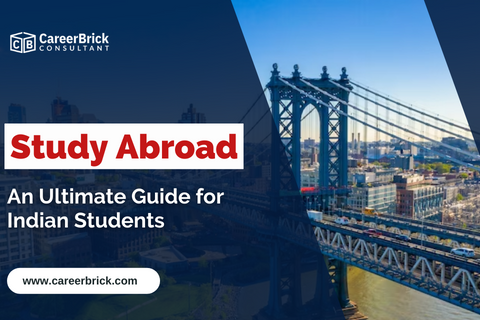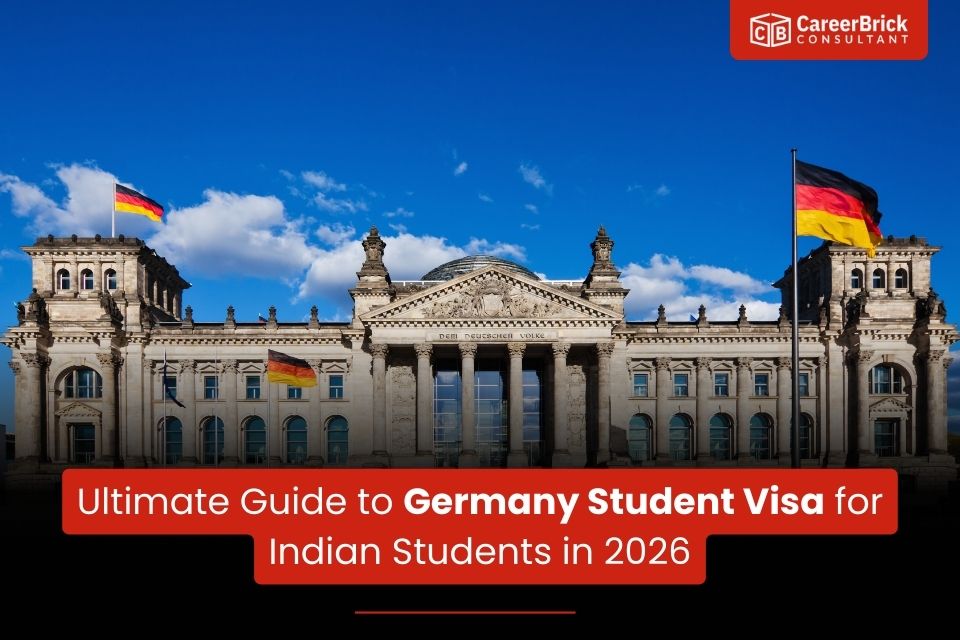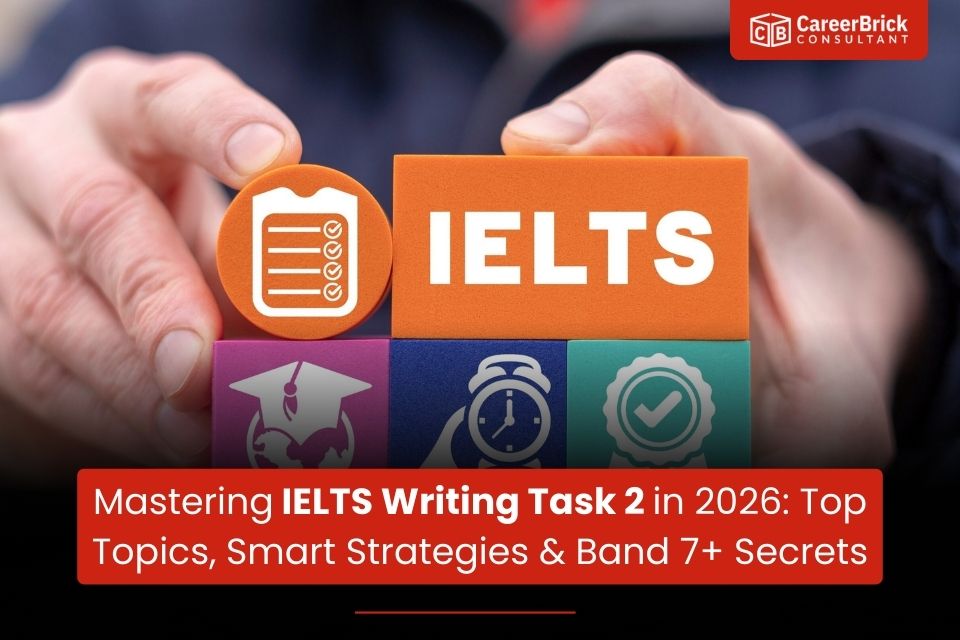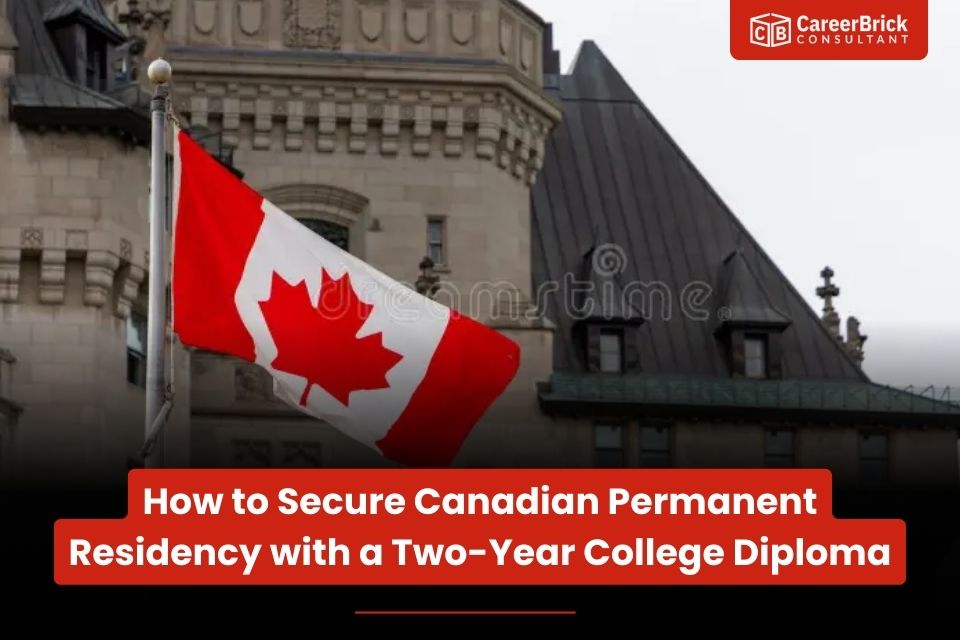Education must not be limited by boundaries ceasing students from the global experience and numerous opportunities. Until recently, studying abroad has been a determinant of financial privilege, an activity considered mostly by financially affluent families. With the advancements happening worldwide, higher educational universities are making their environment more inclusive for international students. The opportunities to explore different countries and their people have become accessible for many students interested in pursuing education internationally.
Foreign education can have a significant influence on a person's life. With a curriculum wisely designed to provide learners with valuable skills, abroad universities promise high-quality education. After gaining education abroad, students are highly valued, which contributes to them acquiring better job prospects and highly remunerative employment opportunities. This has also become a prominent factor motivating Indian students to pursue their education abroad. However, studies have shown that many students determined to pursue education abroad give up on their objective due to the overwhelming process of planning and preparation to study abroad. This blog provides a study abroad guide for Indian students in the process of applying for higher studies.
1. Research and Development – Choosing the best country to study abroad
After deciding to study abroad, your first step is to research and find an appropriate educational destination. A wide range of options is available for students because many abroad nations have introduced policies making the immigration process easier to attract international students. As an Indian student, while choosing a destination or country, you must consider the following factors -
- Field of Interest –
Understanding and researching the domain in which you wish to pursue your education is vital. Additionally, the destination you choose should be the one that helps your progress in your field with strong industrial ties and connections.
- Language of Communication –
Another major factor is considering the language requirements before you begin the application process. Usually, Indian students prefer choosing a destination where English is the predominant language of communication as it helps them to engage with the local community without a barrier in communication.
- Adaptability –
Studying abroad is a life-transitioning experience. Various complexities can be related to cultural inclusion, travel, food, weather conditions, and lifestyle preferences. While selecting the country, do not forget to analyze your choices on these parameters too.
- Student Benefits -
Some of the distinctive benefits that several popular destinations provide to draw international students include flexible housing alternatives, a higher standard of living, an efficient healthcare system, travel allowances, study abroad scholarships, etc. Prioritize obtaining such rewards while studying to secure an opportunity to finance your educational ambitions.
Based on these factors, some of the popular destinations considered by most Indian students include the United Kingdom, the United States of America, Australia, Canada, Germany, and France.
2. Selecting the University and Course
Once you have selected your study destination, you must research the course and university that fits your interests, ambitions, and experiences. Higher education shapes the personality of the student and influences them in their day-to-day approaches. Manifold undergraduate and postgraduate programs are available for students to acquire knowledge and expertise in their respective fields of interest.
While choosing the university, consider the ranking of the institution at both national and global levels. Understanding the significance of selecting the right university that aligns with your career goals is vital. You must also consider the diversity of programs, its industrial network, and the multicultural exposure it provides. Other essential factors to consider while choosing an institution of higher learning include employment possibilities, visa restrictions for the location, the intake you apply for, the lifestyle you prefer, and the computation of ROI (Return on Investment).
Course selection is an essential step toward realizing your career goals; therefore, it's crucial to base your choices primarily on how well they will prepare you for success in your chosen field. The adaptability of the curriculum, the modules that will be emphasized during different semesters, the career prospects of the course, the scholarship benefits, the transferable skills, and the exposure to the sector that study will bring are all crucial considerations here. The most sought-after majors among Indian students can be broken down into two broad categories: science, technology, engineering, mathematics (STEM) majors, and business and finance majors. In addition, a recent poll published in The Economic Times found that after the epidemic, there was a rise in enrollment for healthcare, climate, and technology courses, particularly among Indian students.
Check out various universities and courses they offer in our blog section here.
3. Management of Finances
The cost of studying abroad can be enormous. Make a detailed budget that accounts for all your expenses, including tuition, housing, food, healthcare, transportation, and miscellaneous items. Research and explore scholarship options within the desired country and those under Indian government programs. Try to get some kind of financial assistance, whether a bank loan, a student loan, or a sponsorship. Prior financial preparation can help students stay out of debt while they attend university. The following table will briefly account for the overall expenditure for undergraduate and postgraduate studies in some popular abroad study destinations.
|
Country |
Undergraduate Programs |
Graduate programs |
|
United Kingdom |
10,000 - 20,000 GBP |
10,000 - 40,000 GBP |
|
United States of America |
20,000 USD - 60,000 USD |
20,000 USD - 45,000 USD |
|
Canada |
25,000 CAD - 30,000 CAD |
30,000 CAD - 35,000 CAD |
|
Australia |
20,000 AUD – 45,000 AUD |
20,000 AUD – 50,000 AUD |
These costs may also vary depending on specific criteria regarding the university and the course.
4. Preparing and Appearing for Standardized Test
A standardized English language proficiency test aids in determining a candidate's listening, reading, writing, and speaking abilities in the English language. Most Indian students who desire to study abroad apply for English – speaking countries. A condition that is important to know is that you will be required to show proof of your English proficiency to seek admission into foreign English-speaking universities. You must provide the scores of any English Language Proficiency Tests like IELTS, TOEFL, PTE, or Duolingo. These scores are required while you proceed with the application process and apply for the visa. The tests listed below are standardized and widely acknowledged assessments of non-native English speakers' English proficiency.
- IELTS (International English Language Testing System) - IELTS is a globally recognized English language test recognized by academic institutions, businesses, professional bodies, and government agencies in over 140 countries. The test assesses students' reading, writing, listening, and speaking abilities.
- TOEFL (Test of English as a Foreign Language) - TOEFL concentrates specifically on academic English, which is why it is so popular among students who wish to study abroad. The test is assessed using an impartial system by multiple test raters, and the identities of the candidates remain anonymous.
- PTE (Pearson Tests of English) – This test is entirely computerized and provides test takers flexibility by allowing them to register up to 24 hours before the test, and the test results are released 48 hours after the test has been taken.
- Cambridge English: Advanced (CAE) - The University of Cambridge administers this assessment; consequently, the tests and results are highly regarded by over 130 countries worldwide.
- DUOLINGO - Over three thousand institutions recognize the Duolingo English Test certificate. Candidates can anticipate receiving their results within two days of finishing the examination. This test can be taken anywhere, so the candidate is not required to travel to a specific testing center to take it.
Below is the table that will give you details of the duration and fees of the tests mentioned above.
|
Standardized Tests |
Duration |
Fees |
|
IELTS |
2 hrs 45 min |
15900 INR |
|
TOEFL |
Paper - 3 hrs / Internet – 4hrs |
14,322 INR |
|
CAE |
4 hrs |
3500 INR |
|
PTE |
3 hrs |
15900 INR |
|
DUOLINGO |
60 min |
4028 INR |
5. Process of Application
After taking any of the aforementioned language proficiency examinations, the next crucial stage is to submit an application to the university. Here is a list of instructions you must adhere to when beginning the application procedure.
- It is crucial to submit your application by the deadline specified by the university. Thoroughly go through the brochure that explains the university and course requirements.
- Ensure that all of your documents about your academic and professional experience, including letters of recommendation and transcripts of your academic qualifications, are kept in a place where they can be made available to the university upon request.
- The university requires a Statement of Purpose or Letter of Motivation detailing your knowledge, skills, and motivation for pursuing the course. Ensure your essay is edited, proofread, and follows the university-recommended format.
- Ensure course and university acceptance by completing the application process meticulously and error-free; do not wait until the last minute to submit your application.
- After receiving your acceptance letter, you must pay the required admission charge to confirm your enrollment at the university.
- Studying abroad is an enriching endeavor. Seek assistance from seasoned professionals who can guide you through the process appropriately.
6. Student Visa Process
After your enrollment has been confirmed, you will be able to apply for a non-immigrant student visa that will allow you to study in the appropriate foreign country. These are stamps added to the government passports, which provide students with a stay permit for their studies without requiring them to become citizens. Follow the steps outlined below to register for a student visa with the appropriate government department abroad:
- Enroll at the institution of your choice
- Complete the online application and submit all of the necessary paperwork
- Pay the fee and submit the application online
- Schedule an appointment at the relevant embassy and appear for the interview.
- Wait for the Visa Officer's decision.
The following table shows the types of visas in the countries most favored by Indian Students
|
Country |
Type of Visa |
Duration of the Process |
|
USA |
F1 |
2-3 months |
|
United Kingdom |
Tier 4 |
Within one month |
|
Australia |
Subclass 500 |
2-3 months |
|
Canada |
Student Visa |
2-3 months |
|
Germany |
D Visa |
Within a month |
|
Ireland |
C or D Visa |
One month |
7. Preparing for Departure
After receiving the letter of acceptance and study visa, the final stage is to make travel arrangements. Make travel plans, reserve accommodation, and acquire health insurance. Inform your bank and mobile service provider of your travel plans and make sure you have access to funds while you are abroad. Familiarize yourself with the local customs, language, and culture of your destination.
You will embark on a journey of self-exploration and innovation while pursuing higher education abroad. Having access to knowledge and skills from across borders will enhance your personality and help you acquire new perspectives on cultures and societies. In addition to studying abroad, numerous crucial details must be addressed, such as the exchange of currencies, insurance, housing, mobile phone plans, starting an account with the bank, country rules and regulations, and cultural adaptation, before your departure.
Conclusion
Studying abroad has become accessible to a larger community of people who aspire to gain success and growth in their lives. Exploring a new country, a new education system, and gaining a global perspective can pave the way for various opportunities in remarkable organizations. We here at Career Brick aim to assist you with the complications you may face during your journey, beginning when you decide to study abroad. With our qualified team of counselors, we are here to guide you through the entire process.
For Indian students, studying abroad can be an enriching and transformative experience. Following this complete guide, you can easily navigate the process from choosing your destination and course to preparing your finances, applying for visas, and adapting to your new academic and cultural environment.







